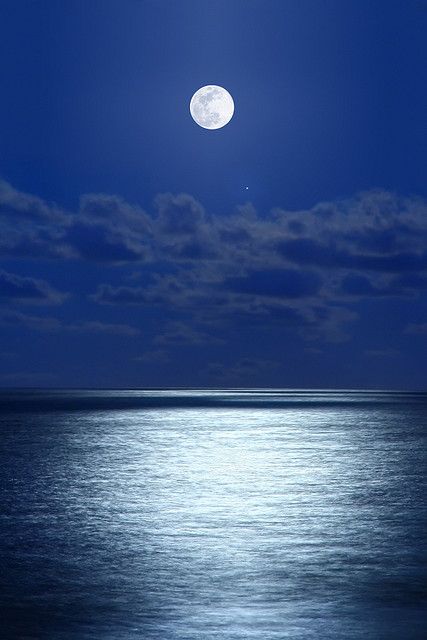I will tell you of one incident in Rabindranath Tagore’s life. His father was a great landlord. Their estate consisted of hundreds of towns and thousands of miles, and there was a beautiful river flowing through their estate. Rabindranath often used to go on his small houseboat and live for months on the beautiful river, surrounded by thick forest, in absolute silence and aloneness. He was reading a very significant contribution to the philosophy of aesthetics, by Croce.
Croce is perhaps the most significant philosopher who has thought about beauty. His whole life’s work was concerned with finding the meaning of beauty – not truth, not good. His sole concern was with what is beautiful. He thought if we can find what is beautiful we have found what is true, because truth cannot be ugly, and we have found what is good, because the beautiful cannot be evil. A beautiful conception …and with this foundation he worked his whole life to find out from different angles what beauty is.
One of the greatest poets that India has given birth to in this century was Rabindranath Tagore. He has written a memoir of tremendous beauty and significance. Rabindranath himself was a worshiper of beauty. He lived a very beautiful and aesthetic life. He not only created beautiful poetry, but his life itself was a beautiful poem. He was a very graceful man.
While Rabindranath Tagore was writing Gitanjali it was his usual practice to go on that small houseboat and live on the river, moving alone, and wherever he liked he would stop the boat. Those were the days when he would compose his poetry.
One full moon night he was writing about the full moon, the beauty of the full moon… sitting inside the small room in the houseboat, not at all aware that outside the full moon was there. He was in one of the best beauty spots of the river – for miles there was nothing but silence. Once in a while a water fowl would disturb the silence, but after this disturbance, the silence would become even deeper.
In the small cabin of his boat he was pondering over one of the ancient most questions that all the poets have pondered over: what is beauty? He was looking into books, ancient and modern; he had a great library in his cabin all about aesthetics: what is beauty? That had been his lifelong concern – what is beauty? – because he had the feeling that God is beauty – not truth, but beauty.
Truth looks dry, truth looks logical. The very word connotes some head-trip; truth seems to belong to the head. Hence Rabindranath used to say that God is not truth but beauty. Beauty is a feel, it is not a logical phenomenon; it is of the heart. It is closer to love than logic.
This had been his lifelong meditation: what is beauty? And on that night also he had been thinking about it, looking into books, finding out definitions. Half the night passed. He was completely oblivious to the full moon, he was completely oblivious to the silence outside, the absolutely silent river and the full moon and the beauty of the full moon. And the whole river was transformed into silver… and the silent trees meditating on the banks, and only once in a while a distant call of a cuckoo. But he was completely oblivious to it all.

He was completely unaware; just by candlelight he was writing about the full moon, its beauties. Then in the middle of the night, feeling tired, exhausted, he closed the books, blew out a small candle, and suddenly a great revelation happened. And as he blew out the candle – he writes in his diary – “a miracle happened. I was shocked, because as the candle was no longer there, from every nook and corner the moon came dancing in. The moon filled the house with its splendor.…” The hut that was on the houseboat was made of bamboos as they are in Bengal. So from every gap in the bamboo the moon started showering in.
That sudden change – the candle was burning and the moon had not been coming in… The moment the candle was blown out the moonlight entered in. For a moment Rabindranath was in such awe that he says, ”I knew in that moment what beauty is. I cannot say to anybody, I cannot define it yet, but in that moment I knew what beauty is. The utter silence, the distant call of the cuckoo, suddenly the entering of the moonlight…. ”
He went out… it was sheer beauty. The whole existence was celebrating! The river was just silver, the whole sky opened with just a few white clouds floating.
Rabindranath remained silent for a moment …it was such a sacred experience.

He went out of the house, and the moon was immensely beautiful in that silent night amongst those silent trees, with a river flowing so slowly that there was no noise. He wrote in his diary the next morning, “The beauty was all around me, but a small candle had been preventing it. Because of the light of the candle, the light of the moon could not enter. How foolish I am! I was looking in the books for the definition of beauty, and beauty was standing at my door! And a small candle prevented the great moon from entering!”
For a moment he was struck dumb. He had never seen so much silence. He came out, he saw the moon and he wept. He went back and tore up the poetry he had written about the moon and the light of the moon and the beauty of it, and wrote in his diary: “I was very unfair to the moon, to the silence of the night. My poetry was just rubbish; it could not represent even a thousandth part. The moon was outside just knocking on my door, but I was so much involved in writing my own book, I didn’t hear the knock. I was talking about silence in my poetry and the silence was so profound outside – I have never before come across such silence, nor since. I would have missed it if I had gone to sleep without blowing the candle out. That small candlelight was enough to prevent the moon from coming in.”
He wrote in his diary, ”Exactly like that, in that night I felt this small ego and its pale light preventing the Guest, GOD.”
Blow this candle out, blow it out! Let there be no ego, and suddenly, from every nook and corner, the Guest enters in – and you know what beauty is, and you know what God is.
People are full of books and words which are not their experiences. And unless something is your experience, don’t go on deceiving yourself. Knowledgeability can be very deceptive; and these religions are responsible for making people knowledgeable.
The religions should help people to become innocent, they should help them to become ignorant; they should help them to enquire, search, seek.
This is exactly the meaning of nirvana. Your small flame of the ego, your small flame of the mind and its consciousness, is preventing the whole universe from rushing into you; hence the word nirvana — blow out the candle and let the whole universe penetrate you from every nook and corner. You will not be a loser. You will find, for the first time, your inexhaustible treasure of beauty, of goodness, of truth — of all that is valuable. Hence, mind cannot be said to reach nirvana; only no-mind is equivalent to nirvana.
No-mind need not reach to nirvana. No-mind IS nirvana.
Osho, From Ignorance to Innocence, Ch 12 FAITH: THE SUICIDE OF INTELLIGENCE (excerpt)
Osho: Bodhidharma: The Greatest Zen Master Chapter #12 Chapter title: Every suffering is a Buddha-seed (excerpts)
Osho: The Guest: CHAPTER 4. THE GUEST WAITS FOR YOU TO DIE (excerpts)
** HAPPY SHARAD PURNIMA **
=============================================================
सामने है जो उसे लोग बुरा कहते हैं
जिस को देखा ही नहीं उस को ख़ुदा कहते हैं ……………………सुदर्शन फ़ाकिर
sāmne hai jo use log burā kahte haiñ
jis ko dekhā hī nahīñ us ko ḳhudā kahte haiñ……………………. SUDARSHAN FAKIR
People discredit the one before them
and worship the one unknown.
A very soothing song praising Mother Nature and its beauty from the film “Madhumati” (1958) sung by Mukesh. It is an evergreen song for many generations. Please enjoy…(154) Suhana Safar Aur Ye – Madhumati Songs – Dilip Kumar – Vyjayantimala – Mukesh – YouTube


Serendipity !
Speechless 🙏
I am in a highrise and facing west from where this time’s full moon I could see before it set ! Yes I have enjoyed and felt one with the universe in the early hours of the dawn !
May be just after Kavivar Tagore, our gujarati poet “Kant – કાન્ત ” (Manishanker Ratnji Bhatt – મણિશંકર રત્નજી ભટૃ) wrote
આજ મહારાજ, જલ પર ઉદય જોઈને ચંદ્ર નો, હૃદય માં હર્ષ જામે
“O Lord, seeing the rising Moon on the water, my happiness (excitement) is also rising.”
Kavivar Tagore, has also written a prayer which was our school prayer as well : મંદિર તારું વિશ્વ રૂપાળું સુંદર સર્જનહારા રે
…..મંદિર માં તું ક્યાં છુપાયો શોધે બાળ અધીરાં રે…
This amzing universe is your temple oh Creator ,
….. this anxious child is seeking you as to where you are hiding in this amazing temple”
👌👌👌
Excellent. Thought provoking. Happiness is not the privilege of few but if a religion can teach us how to be happy than entire mankind can be happy. Bhagvad geeta is one which can show this path
Beautiful…
No words… you have written it so beautifully that every essence of the exquisite but splendid experience reached to its fullest🙏🏻
Beautifully compiled and what a revelation!!
Loved the sentence ” religion should make people Innocent”
Overwhelming… can see beauty “Happening” in imagination. Feel thats the power of your writing…
Would like to remember “No-mind need not reach to nirvana. No-mind IS nirvana.” and make attempts to experience.
Thanks
No mind IS Nirvana. 🙏🙏
Excellent👌🏻